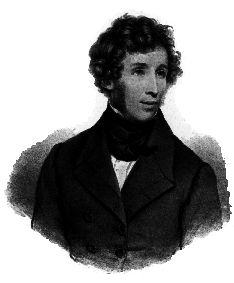
Friedrich Wöhler (1800-1882)
Studied with Gmelin and with Berzelius (1823). Professor at Göttingen (1836-1882). Wöhler's lectures for students at Göttingen were given four days a week beginning at 6 A.M. (There is no mention as to when they ended.) Wöhler collaborated with Liebig on the chemistry of the benzoyl radical and he corresponded extensively with Berzelius. In 1828, Wohler converted ammonium cyanate, an inorganic compound, into urea, an organic compound. Both compounds had the same elemental composition but they had different properties. This experiment is considered to have helped to overthrow the vitalism/dualism theory supported by Berzelius. Nonetheless, Berzelius was impressed because the result was an example of isomerism, a topic of interest to him.